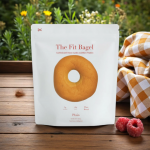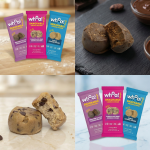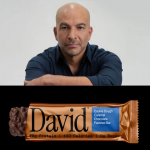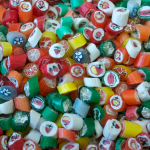SorBabes Rebrands, Focuses on Frozen Novelties Following Manufacturing Struggles
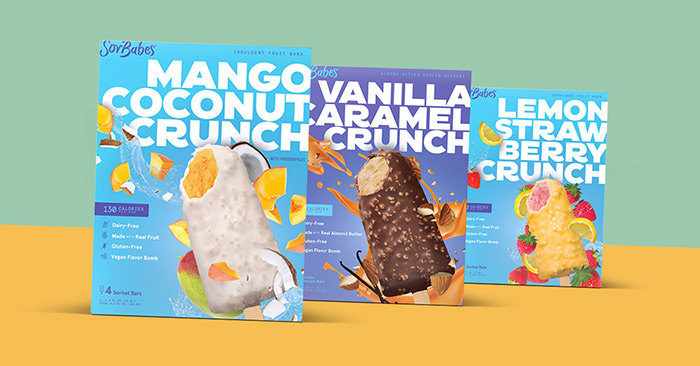
After a challenging year that has seen the company grapple with supply chain issues and a manufacturing change, sorbet maker SorBabes is ready for a fresh start with a new focus on frozen novelties. To support this new direction, the company has also debuted rebranded packaging and a social media campaign emphasizing the importance of indulgence.
SorBabes was launched in 2013 by Deborah Gorman and CEO Nicole Cardone, offering a variety of sorbet flavors sold first in gallons and later in pints. In 2016, the company signed a licensing deal with Wells Enterprises, one of the country’s largest frozen dessert co-packers and maker of Blue Bunny Ice Cream. The deal allowed Gorman and Cardone to retain 100% ownership of the company while Wells assisted in areas like manufacturing and packaging.
In early 2020, the brand debuted its second line: frozen novelty bars combining their sorbet with crispy quinoa and a chocolate or white chocolate coating, available in Strawberry Crisp, Wild Berry Crisp, Mango Coconut Crunch and Vanilla Caramel Crunch flavors.
While the bars saw strong initial sales, extensive manufacturing and supply chain issues at the onset of the pandemic led to out-of-stocks. After the brand’s manufacturing and licensing partnership with Wells ended late last year, finding manufacturers to produce the bars, which require more specialized equipment than its pints, proved difficult as facilities cut back on their output in light of labor shortages, Gorman said.
In addition, supply chain issues forced the Sorbabes team to adjust its recipes to use ingredients that were more readily available, Gorman said, while prices for its paperboard packaging increased three times in 2020. The company never raised its retail prices during this time, Cardone said, which she added ultimately helped them become “more efficient operators.” Still, Cardone said the company expects to implement price increases next year noting that maintaining current prices ultimately just wasn’t feasible in the long term.
“Sometimes things are really hard in life, and you just have to weather through them,” Gorman said. “In the end, we learned so much in the last year, more than we could have ever learned, in prior years because of just understanding how to plan and how to be better.”
SorBabes eventually struck a new partnership with a co-packer in Southern California, but with 13 SKUs across pints and bars and no outside financial support, the company decided to discontinue the pints this year to focus solely on novelties, which are currently sold at HEB in the Pacific Northwest and select Whole Foods Markets. Compared to a “saturated” pint market, Gorman noted the novelty line had seen better sales, thanks in part to increasing demand for single-serve, handheld options from both consumers and retailers.
SorBabes worked with advertising agency Fact & Fiction on the revamped packaging for its bars, which retires its prior unicorn imagery in favor of a more colorful look that emphasizes the products’ “biggest selling points”: flavor and experience.
The brand has also adjusted its marketing and brand positioning over the past year, Gorman said. After facing a tumultuous year that ultimately led to many Americans reporting a feeling of burnout, Gorman and Cardone decided to center the bars around self-care and indulgence and promote “positivity” around dessert, especially as the industry focuses on low sugar and low calorie sweets.
“We were looking at how we react to the environment of dessert, and that people and women especially have been guilty for so long for indulgences and or eating calories in a way that is not healthy,” Gorman said. “With our social media team, we’ve been really working on positioning and understanding and really being a feminist brand in that way to help other women feel really good about eating and dessert.”
With a new manufacturing partner in place, Cardone said the goal now is to grow distribution for its bars nationwide, though it is focused on “slow methodical growth that is sustainable.”
“The options that a lot of small companies think that they have — or the only option they think they have — is to sort of go big or go home immediately,” Cardone said. “We have decided between Deborah and I that we love running this company. This is like living our dream by running this company, and it’s important that we keep it going, make it profitable, and that we have a good sustainable business.”


